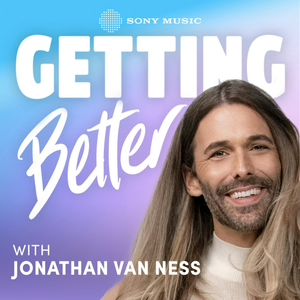
#40 Business of Poison
06/04/21 • 50 min
Ivelaw Lloyd Griffith, Ph.D., Senior Associate with the Center for Strategic and International Studies and Fellow with the Caribbean Policy Consortium, both in Washington, DC, provides vignettes on the end-to-end process of the drug business, which includes production, trans-shipment, consumption, and money laundering. He elaborated on the impact in the Black community, why "just say no" did not work, and why "the war on drugs" was unhelpful. The recommendations of this two-time university president and author of several books based on 3 F's--Faith, Family, and Friends--are profound.
"In an effort to control drug sale, possession, and use in New York city, they began to confiscate vehicles of people found with drugs. The first four months of confiscation, most of the vehicles confiscated for people using drugs were not from New York city. They were the rich white kids from New Jersey who were driving into the Black communities to purchase the drugs. So you've got to ask the question "is what you are seeing in the Black community of the Black community"? - Prof. Ivelaw Lloyd Griffith
Ivelaw Lloyd Griffith, Ph.D., Senior Associate with the Center for Strategic and International Studies and Fellow with the Caribbean Policy Consortium, both in Washington, DC, provides vignettes on the end-to-end process of the drug business, which includes production, trans-shipment, consumption, and money laundering. He elaborated on the impact in the Black community, why "just say no" did not work, and why "the war on drugs" was unhelpful. The recommendations of this two-time university president and author of several books based on 3 F's--Faith, Family, and Friends--are profound.
"In an effort to control drug sale, possession, and use in New York city, they began to confiscate vehicles of people found with drugs. The first four months of confiscation, most of the vehicles confiscated for people using drugs were not from New York city. They were the rich white kids from New Jersey who were driving into the Black communities to purchase the drugs. So you've got to ask the question "is what you are seeing in the Black community of the Black community"? - Prof. Ivelaw Lloyd Griffith
Previous Episode

#39 Follow Results, Numbers Speaks!
Anna Ekeledo, Executive Director of AfriLabs Foundation and Working Party Chair of eCommerce Forum Africa, spoke from Lagos in Nigeria. The Nigerian-Senegalese expounded on the excitement and the reality of being a Black youth on the continent. She highlighted the uniqueness of the environment, the people, culture, and solution adaptation, while identifying the most appropriate stakeholders to define and solve the Black problems. (Since the recording of the podcast, Anna has joined a Nigerian political party, the Youth Party).
"I know that there is still that savior mentality that says Black people haven't figured it out, we don't know what to do, we don't know how to do it. So we need to come and be supported. While I recognize that there are a lot of challenges that we still face around healthcare for example, or the education sector, and all of this, our infrastructures are not there yet, people are still financially excluded and don't have access to clean and affordable energy, yes, all those challenges are there but then that mentality of Black people can't figure it out and we need to come and help them because they can't think by themselves is not ...." - Anna Ekeledo
Next Episode

#41 Do You Love Yourself?
Darryl Mobley, prior corporate executive of Procter and Gamble, the world #1 Coach, and the CEO of Catapult Leaders spoke as a father, a husband, and a professional. He shared his reasons why he considers negativity as a drug, the reason why people want you to hate yourself, what you can do to change, and why fighting may not be bad.
"And I am resolute about this stuff. I don't care about your politics. I don't care about what you call yourself. I don't care about the party you belong to - it's a bunch of crap. What matters is what you do, because it was easy back then, and anybody who went into history can look and say "about when was that time period" Daryl? Who was running that era? Who were the judges? Who were the mayors? Who were the people punishing this kids, and giving kids - a kid might steal a pack of gum and get a year in a Black juvenile home. For a similar crime, a white kid will get a probation" - Darryl Mobley
If you like this episode you’ll love
Episode Comments
Generate a badge
Get a badge for your website that links back to this episode
<a href="https://goodpods.com/podcasts/reimagining-black-relations-417487/40-business-of-poison-57961608"> <img src="https://storage.googleapis.com/goodpods-images-bucket/badges/generic-badge-1.svg" alt="listen to #40 business of poison on goodpods" style="width: 225px" /> </a>
Copy




